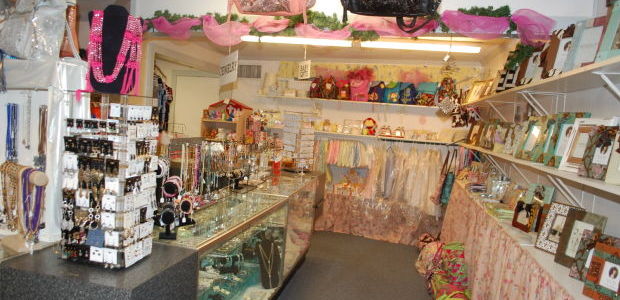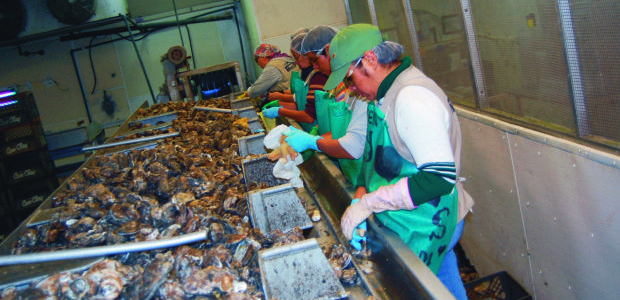Lafourche port commissioners sworn into office
January 16, 2013
My Angel Baby separates itself with range of products
January 16, 2013The good news for local fishermen, processors and others who make a living off the water is that there’s more money than ever available to strengthen Louisiana seafood in domestic and global markets.
There is a belief that the industry by the Deepwater Horizon oil spill, in the long run, might not only be repaired but that it could bounce back better than ever.
But with that potential for success also comes some bad news.
E-mails and interviews reveal a Louisiana Seafood Promotion and Marketing Board in some degree of disarray, its membership fractured by disagreements over management of a $30 million BP windfall, giving the board more money than it has ever been responsible for.
The developments are important not only to fishermen working in boats big and small, but businesses removed from the docks like groceries and auto dealers, whose continued success is affected by the fortunes of seafood ventures in coastal communities.
Accusations of a runaway chairman who appears to not take into consideration opinions that don’t match his own persist.
So do accusations that a vocal and critical minority of board members are not acting in the best interests of Louisiana’s seafood industry overall – the same accusations they have lobbed at members of the majority. A more cohesive board – even if not unified, at least willing to work civilly together – is what some industry experts say is needed now more than ever.
New board members – or at least a partial slate of them – will be announced at some point by Gov. Bobby Jindal. But the announcements, traditionally made in January, have not yet occurred. Recent opinions from the state ethics board, which make clear that industry members sitting on the seafood board may not directly benefit from the unprecedented promotions they are managing, are giving candidates for those seats pause for thought, potentially narrowing the field.
Ewell Smith, executive director of the board for 12 years, sees much of the current boat-rocking as a natural part of the growth process, especially with the injection of money.
“We have an opportunity of moving forward with a new board which is exciting, there will be a new energy, and a new level of excitement that comes from what they will bring as perspectives,” said Smith. “We expect that there has been scrutiny from the media, the legislature and the industry itself. We have a staff caught between that, trying to please so many constituents.”
Among issues raised between board members are questions of how much lead time the industry as a whole had to prepare or sign up for seafood shows in different parts of the country, allowing board members a jump-start at the expense of the less-connected.
“We have brought it up several times, the Boston Seafood Show, the Chicago Restaurant Show,” said board member Kim Chauvin, of Mariah Jade Seafood in Terrebonne Parish. “The benefit of these shows is that our board pays for so much of it and you might pay $2,500. We all knew that letter went out very, very late, in terms of getting to the rest of the industry. If someone really wanted to go, they can’t always get stuff ready in time.”
Chauvin, along with some other board members, have also criticized how well or quickly Pearse and staffers have gotten other information out to fishermen and others in the industry on board activities.
Communications with Louisiana Department of Wildlife and Fisheries Secretary Robert Barham made by Chauvin and others have not received direct responses.
Some of those questions did make their way into questions posed to the state ethics board, however. In most cases – such as whether a board member may donate his or her product to a celebrity chef for use in a promotion – the board said the activity did not run afoul of state ethics law.
Another issue brought up by longtime board member Stephen Minvielle is the entity’s continued lobbying on behalf of the nation’s guest worker program, which allows processors and others in the industry to hire immigrant workers.
According to Smith, that has always been done, and the statute creating the board provides that education of legislators is part of its mission.
Minvielle is not convinced.
“Is it legal for the chairman of the board to hire (two) registered lobbyist, one state and one federal to work on legislative issues not pertaining to the board funding?” states a letter Minvielle wrote to the Louisiana Legislative Auditor. “Is it legal for the chairman to use the seafood board’s state funds to lobby for regulatory changes or variances to the guest worker program (the H2B program) on the federal level with these funds? This was not brought up at a board meeting or with in the guidelines of the ratified budget, until after the fact.”
“I have attached a copy of the laws governing the board and I do not see where the seafood board has that authority and to best of my understanding of it, I believe it is restricted to only educating our legislators on how to fund the board for promotion and marketing purposes,” said Minvielle, who wrote his letter in December and has yet to receive a response. A direct inquiry to the Legislative Auditor’s office last week has not yet been addressed.
Pearse’s response to such criticisms or inquiries has been, according to board minutes, some terse statements about him being the chairman.
“Everything I have ever done here has been for the good of the industry and never for personal gain,” Pearse said in an interview. Known as an energetic center of inertia, whose history includes current service on the Gulf of Mexico Fisheries Council, Pearse expresses difficulty understanding why anyone would legitimately question his motives.
But board insiders, including some who publicly are supportive of Pearse, are questioning whether his occasionally brash assertions might result in his failure to be re-appointed.
Bruised feelings and suspicions occurred in another board action, concerning the body’s acceptance of a promotional deal with the New Orleans Saints.
Chauvin and some other board members said they were shut out of a discussion after a vote was taken on the program.
Pearse said no votes were taken during the telephone conference, which came within days of the Saints vote.
“Harlon specifically knew that what he was doing was not correct and continued with it anyway,” Chauvin wrote in a letter to Smith. “I’m sure in our audio minutes you’ll hear the dollar amount and the board voting on that proposal. In changing the proposal, Harlon Pearce, the chairman, should have called a special meeting for all board members to vote on the changed proposal and that was not done before the signing of the contract….only certain board members were called to discuss it. Those called had nothing before them and only gave a yes or no as to what Harlon was saying. I’m not okay with this at all.”
Chauvin also questioned the moving of $1 million into the board’s sponsorship committee fund, which she maintains was improperly done.
“We are either going to follow our policies and procedures along with Robert’s Rules of Order or we are not,” her letter states. “After I brought this up in the meeting, Harlon Pearce, the chairman’s response was…’it’s OK because I’m the chairman.’ Can you find that anywhere in the board’s policies and procedures or in Robert’s Rules of Order because I can’t?”
Chauvin, Minvielle and other critics on the board say they are fairly certain they won’t be invited to return once Jindal finalizes his appointments.
Smith, who has tried to avoid publicly taking sides in the squabbles, says that no matter what happens, he is hopeful the board will weather its current internal storm, while overcoming the issues brought on by the Deepwater Horizon spill.
As he and others in the industry have noted, the problem for Louisiana seafood has not been tainting of the product due to oil, but tainting of its reputation due to fears about oil.
Continued exposure to the public, especially now that professional agencies have been hired to spread the message, Smith said, of the benefits Louisiana seafood inherently possesses, can go a long way toward future success.
New Orleans, Smith noted, has come back stronger than ever despite the catastrophe that was Hurricane Katrina. He is convinced the seafood industry will do the same.
Pearse maintains that all done under his chairman’s watch is beyond reproach.
“I lose being chairman of the board about 20 or 30 hours a week because it is so critical to the industry,” he said. “Myself and Ewell and Mike Voisin were responsible for getting that 30 million and worked hard for all that stuff. It’s a lot of effort, educating legislators and congressmen to doing and keeping the industry. We have a chance here to market the industry as a whole; we never had the opportunity or the money to do that. We wanted to fit it all in not just for shrimp and oysters but catfish, alligators, crawfish, you name it. I’m pretty proud of everything that we have done.”
Motivatit Seafood in Houma is one of many local businesses that could benefit from new programs of the Louisiana Seafood Promotion and Marketing Board, which received a substantial money injection from BP related to the Deepwater Horizon oil spill. The board is due for new members but Gov. Bobby Jindal has not yet made his choices public.














